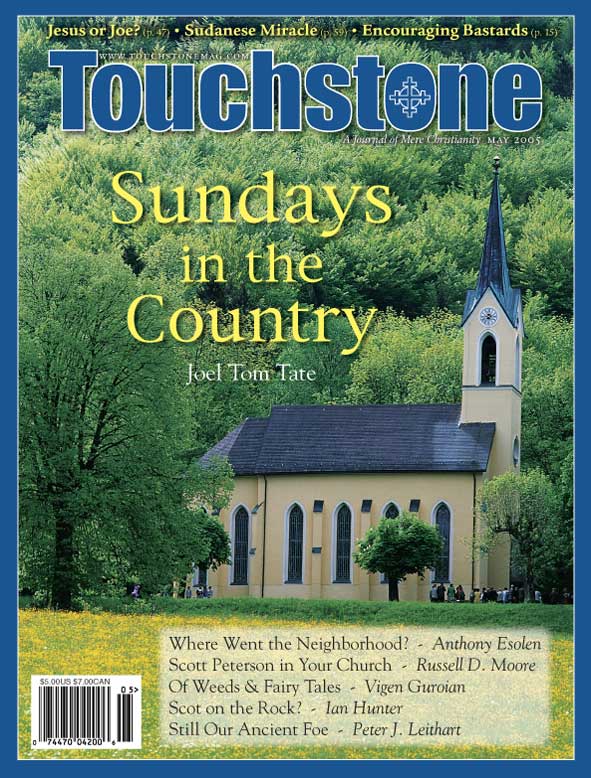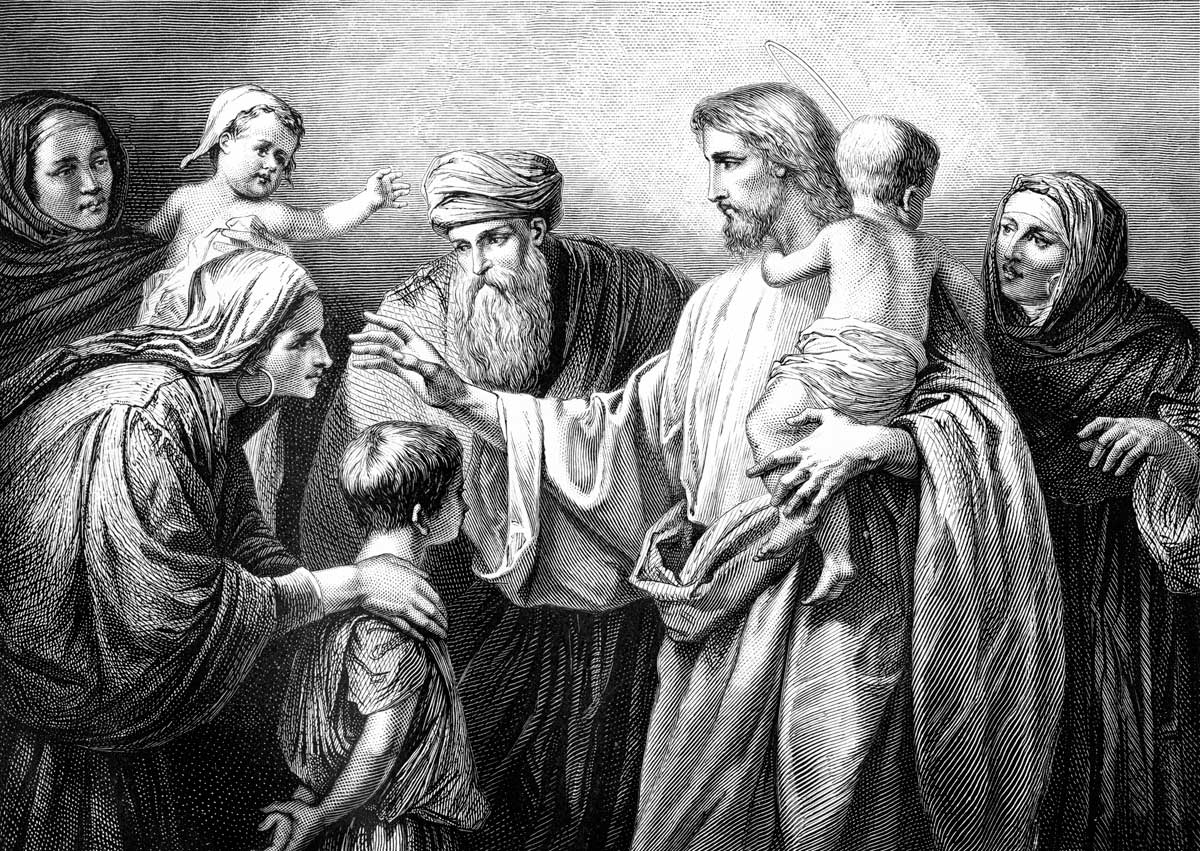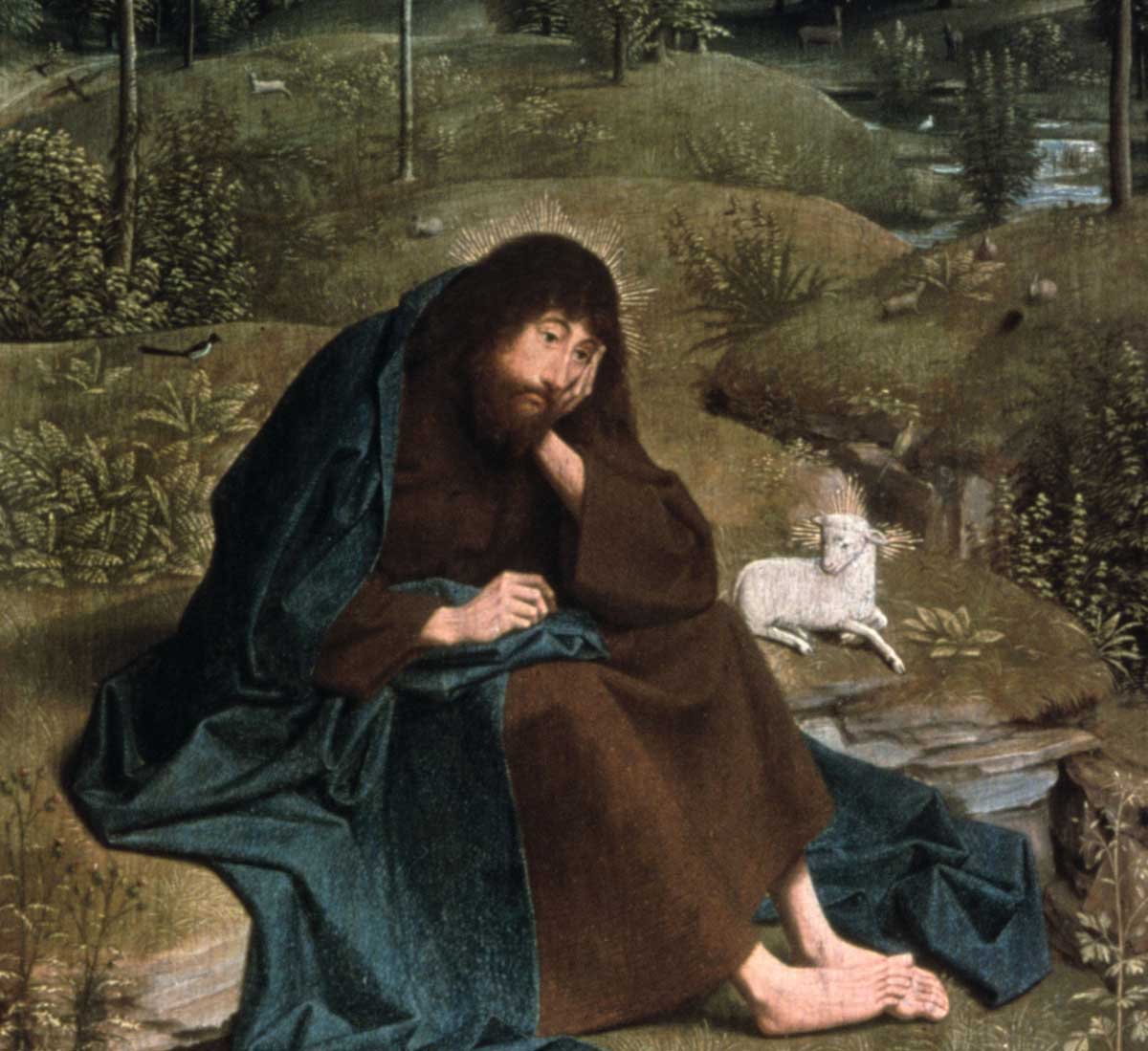Anthropology & the Incarnation
The assertion that the Word became flesh, whatever else it implies, certainly creates an entirely new and unexpected context in which to pose the question, “What does it mean to be a human being?” It really is not possible to affirm, “God became man,” and then proceed to ponder the concept of humanity apart from that affirmation. In short, the doctrine of the Incarnation must dominate, have complete lordship over, anthropology.
Indeed, the arrival of Jesus on the scene of history necessarily divides the human race regarding its most elementary anthropological assumptions. Those who confess that God’s Son is now a human being are obliged to consider all things human in a way different from those who deny that confession. Making that confession, we are not really capable of viewing humanity except through a “Jesus lens.”
This anthropological dominance, indicated by the confession “Jesus is Lord,” may be considered under three headings: Jesus as Father, Jesus as Brother, and Jesus as Truth.
First, considering Jesus as Father, we are instructed by Paul’s contrast of Jesus with Adam in Romans 5. Paul tells us there that through Adam, the father of the human race, sin entered into the world, and by sin, death. Adam’s disobedience in the garden was our downfall. In contrast to Adam, Jesus was obedient in the garden—“Not my will but thine be done”—and by this obedience reversed Adam’s direction of history. As Adam brought death to humanity by his self-assertion, so Jesus brings humanity to life by his obedience.
From this consideration of Jesus as the new Father of humanity, we learn that man is not autonomous; he does not reach the fullness of his humanity by the path of self-assertion, but by the way of obedience to God.
As our new Father, Jesus does not represent the physical origins of humanity but its final goal. The perfection of the human race will consist in Jesus’ handing all of redeemed creation back into the hands of God. This means that human beings are not self-made men who must “answer to history.” It means, rather, that human history itself must answer to a far higher tribunal.
This note of a final judgment on history brings us to our second consideration, Jesus our Brother. “Go and tell my brethren,” he says to Mary Magdalene (John 20:17). “I will declare your name to my brethren,” says he to the Father in Hebrews 2:12.
Most of all, however, Jesus claims brotherhood with all mankind in the context of history’s final judgment, where we learn, “inasmuch as you did it to the least of my brethren, you did it to me” (Matt. 25:40). Jesus’ proclaimed solidarity of brotherhood with the whole human race means that the proper destiny of that race is a true community. It is not an assembly of self-made individuals, but the communion of the younger brothers and sisters of Jesus, who will be judged, at the end of history, on the basis of how they have treated one another. Jesus as Brother, then, means Jesus as Judge.
Finally, Jesus’ anthropological lordship is to be considered under the aspect of “Jesus as Truth.” When Pontius Pilate asked, “What is truth?” we are right to regard his question as skeptical, because he did not wait around for an answer (John 18:38). In fact, however, only shortly before, Jesus had already identified himself as the Truth (14:6). The correct question, then, is “ Who is the Truth?”
This identification of Jesus with the Truth does not mean only what is called “religious truth.” It affirms, rather, that there is no truth outside of Jesus Christ. All truth subsists in his person.
This thesis prompts two considerations. First, it is possible that any truth may prove to be an initial path to Christ. All truth, as truth, leads to Christ. Therefore, those who belong to Christ must be intent on “whatever things are true” (Phil. 4:8).
Patrick Henry Reardon is pastor emeritus of All Saints Antiochian Orthodox Church in Chicago, Illinois, and the author of numerous books, including, most recently, Out of Step with God: Orthodox Christian Reflections on the Book of Numbers (Ancient Faith Publishing, 2019).
bulk subscriptions
Order Touchstone subscriptions in bulk and save $10 per sub! Each subscription includes 6 issues of Touchstone plus full online access to touchstonemag.com—including archives, videos, and pdf downloads of recent issues for only $29.95 each! Great for churches or study groups.
Transactions will be processed on a secure server.
more from the online archives
calling all readers
Please Donate
"There are magazines worth reading but few worth saving . . . Touchstone is just such a magazine."
—Alice von Hildebrand
"Here we do not concede one square millimeter of territory to falsehood, folly, contemporary sentimentality, or fashion. We speak the truth, and let God be our judge. . . . Touchstone is the one committedly Christian conservative journal."
—Anthony Esolen, Touchstone senior editor











